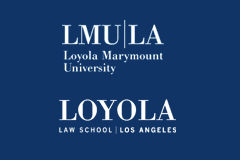Call For Papers
Regular Papers
We encourage submissions of well-written, relevant articles across many article types. We also have the ability to publish less traditional scholarly works including multi-media products such as simulations, video streams, audio productions, and other visualization tools. This is an open access journal which means that all content is freely available without charge to the users or their institutions.
Special Issues
Special issues are generally time-limited issues curated by dedicated editors who invite author submissions. Please see below for open calls for special issues. If you have been invited by editors, please select the relevant special issue from the dropdown. If neither in response to an open call or an editor invitation, please submit your work as an article or one of the other categories below. To propose a special issue, please contact the editors.
Open Calls
Cities and the Environment Symposium Proceedings
On November 20, 2025, the Cities and the Environment (CATE) Journal and the Loyola Marymount Center for Urban Resilience (CURes) held the inaugural symposium featuring and celebrating the research and practice of our CATE and CURes communities! The symposium roster included 19 oral presentations and 14 poster presentations.
A call for papers for symposium proceedings is forthcoming. Please check back for more details, and we encourage you to join the CATE mailing list by emailing cures@lmu.edu to receive relevant journal updates.
